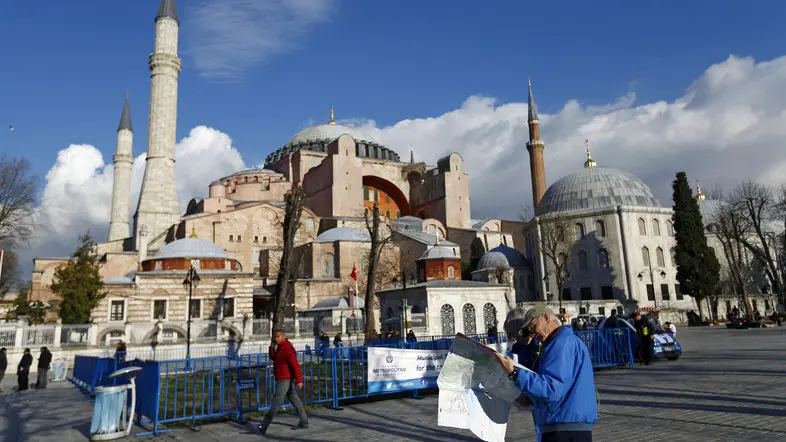
Since November's economic reforms, investors have started returning to Turkey. As the country enters a period of stabilisation, the news that the economy is set to grow will likely see a surge of interest in Turkish property and investments.
In November, a new central bank governor and treasury minister began reforms which aimed to address the two-year economic turmoil which began with the plummeting of the lira and grew with the coronavirus pandemic.
The measures seem to have worked, with many breathing a sigh of relief as the lira stabilised and investors began to return.
Read more: 2021 to be year of reform in Turkey - Erdogan
Now, analysts predict that Turkey's economy will grow by a respectable 4% this year.
Property Turkey director Cameron Deggin was optimistic about the year ahead, he said. "We've certainly seen an uptick in the number of enquiries from potential investors."
The coronavirus pandemic had caused a lot of his clients to rethink the way they invest and live, he said. "We're hearing from people who want stability in their investments and their lives. Or, they want a complete change -- we've had a lot of people asking about Turkish citizenship by investment."

Turkey's economic reforms
Ankara's drive to reform the economy hinges around the reversal of the government's policy to keep interest rates low, even in the face of a falling lira and rising inflation. In April, the bank cut the rate to 8.25%, at the request of President Recep Tayyip Erdogan, who has long advocated for keeping interest rates low.
However, with inflation growing and the lira spiralling, action was needed. It came in November, when new central bank governor Naci Agbal announced two hikes in its policy rate in November and December. These amounted to nearly 7%, bringing the rate to 17%.
The policy reversal has lowered risk perception, boosting investor confidence. The country's risk premium, which hit an all-time high in May, dropped almost 14% over a month.
A flow of money
The lowered risk premium prompted a flow of investor cash, with the Istanbul stock exchange experiencing a flurry of interest. Foreign portfolio investments had increased in 2018 by US$2.2 billion and $3.3bn in 2019. Between November 6 and the close of 2020, foreign investors put more than $4bn in securities in Turkey, investors attracted by the climbing lira. The investments fostered more confidence, buoying the market and further boosting the lira.
While analysts agree it's too early to celebrate, the inflow of foreign money is a welcome sign that the economy is stabilising.
While the higher interest rates have been positive for the economy, companies that rely on cheap credit have been hard hit. The higher rates are also problematic for people with high debt. These pressures put Erdogan under strain, and his government will likely continue to be under pressure in the coming months from two sides: one side for the status quo, and another side for relaxation.







 Kalkan
Kalkan  4
4  4
4 


















 X
X